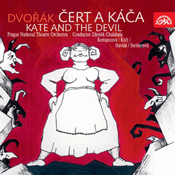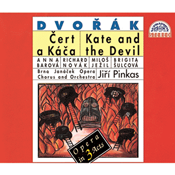Recently in Reviews
English Touring Opera are delighted to announce a season of lyric monodramas to tour nationally from October to December. The season features music for solo singer and piano by Argento, Britten, Tippett and Shostakovich with a bold and inventive approach to making opera during social distancing.
This tenth of ten Live from London concerts was in fact a recorded live performance from California. It was no less enjoyable for that, and it was also uplifting to learn that this wasn’t in fact the ‘last’ LfL event that we will be able to enjoy, courtesy of VOCES8 and their fellow vocal ensembles (more below …).
Ever since Wigmore Hall announced their superb series of autumn concerts, all streamed live and available free of charge, I’d been looking forward to this song recital by Ian Bostridge and Imogen Cooper.
The Sixteen continues its exploration of Henry Purcell’s Welcome Songs for Charles II. As with Robert King’s pioneering Purcell series begun over thirty years ago for Hyperion, Harry Christophers is recording two Welcome Songs per disc.
Although Stile Antico’s programme article for their Live from London recital introduced their selection from the many treasures of the English Renaissance in the context of the theological debates and upheavals of the Tudor and Elizabethan years, their performance was more evocative of private chamber music than of public liturgy.
In February this year, Albanian soprano Ermonela Jaho made a highly lauded debut recital at Wigmore Hall - a concert which both celebrated Opera Rara’s 50th anniversary and honoured the career of the Italian soprano Rosina Storchio (1872-1945), the star of verismo who created the title roles in Leoncavallo’s La bohème and Zazà, Mascagni’s Lodoletta and Puccini’s Madama Butterfly.
Evidently, face masks don’t stifle appreciative “Bravo!”s. And, reducing audience numbers doesn’t lower the volume of such acclamations. For, the audience at Wigmore Hall gave soprano Elizabeth Llewellyn and pianist Simon Lepper a greatly deserved warm reception and hearty response following this lunchtime recital of late-Romantic song.
Collapsology. Or, perhaps we should use the French word ‘Collapsologie’ because this is a transdisciplinary idea pretty much advocated by a series of French theorists - and apparently, mostly French theorists. It in essence focuses on the imminent collapse of modern society and all its layers - a series of escalating crises on a global scale: environmental, economic, geopolitical, governmental; the list is extensive.
For this week’s Live from London vocal recital we moved from the home of VOCES8, St Anne and St Agnes in the City of London, to Kings Place, where The Sixteen - who have been associate artists at the venue for some time - presented a programme of music and words bound together by the theme of ‘reflection’.
'Such is your divine Disposation that both you excellently understand, and royally entertaine the Exercise of Musicke.’
Amongst an avalanche of new Mahler recordings appearing at the moment (Das Lied von der Erde seems to be the most favoured, with three) this 1991 Mahler Second from the 2nd Kassel MahlerFest is one of the more interesting releases.
‘And there was war in heaven: Michael and his angels fought against the dragon; and the dragon fought and his angels, And prevailed not; neither was their place found any more in heaven … that old serpent … Satan, which deceiveth the whole world: he was cast out into the earth, and his angels were cast out with him.’
If there is one myth, it seems believed by some people today, that probably needs shattering it is that post-war recordings or performances of Wagner operas were always of exceptional quality. This 1949 Hamburg Tristan und Isolde is one of those recordings - though quite who is to blame for its many problems takes quite some unearthing.
There was never any doubt that the fifth of the twelve Met Stars Live in Concert broadcasts was going to be a palpably intense and vivid event, as well as a musically stunning and theatrically enervating experience.
‘Love’ was the theme for this Live from London performance by Apollo5. Given the complexity and diversity of that human emotion, and Apollo5’s reputation for versatility and diverse repertoire, ranging from Renaissance choral music to jazz, from contemporary classical works to popular song, it was no surprise that their programme spanned 500 years and several musical styles.
The Academy of St Martin in the Fields have titled their autumn series of eight concerts - which are taking place at 5pm and 7.30pm on two Saturdays each month at their home venue in Trafalgar Square, and being filmed for streaming the following Thursday - ‘re:connect’.
The London Symphony Orchestra opened their Autumn 2020 season with a homage to Oliver Knussen, who died at the age of 66 in July 2018. The programme traced a national musical lineage through the twentieth century, from Britten to Knussen, on to Mark-Anthony Turnage, and entwining the LSO and Rattle too.
With the Live from London digital vocal festival entering the second half of the series, the festival’s host, VOCES8, returned to their home at St Annes and St Agnes in the City of London to present a sequence of ‘Choral Dances’ - vocal music inspired by dance, embracing diverse genres from the Renaissance madrigal to swing jazz.
Just a few unison string wriggles from the opening of Mozart’s overture to Le nozze di Figaro are enough to make any opera-lover perch on the edge of their seat, in excited anticipation of the drama in music to come, so there could be no other curtain-raiser for this Gala Concert at the Royal Opera House, the latest instalment from ‘their House’ to ‘our houses’.
"Before the ending of the day, creator of all things, we pray that, with your accustomed mercy, you may watch over us."
Reviews

26 Jan 2009
Dvořák: Kate and the Devil
On this 1955 recording of Dvořák's folk-tale based comic romp Kate and the Devil, conductor Zdenĕk Chalaba offers a lighter, faster approach than that heard on the modern studio version Supraphon released in 1981, under conductor Jiří Pinkas.
Pinkas keeps the energetic sections moving, while finding streaks of drama and unease elsewhere, not unlike that found in the grim tone poems the composer would soon compose, such as “The Noon Witch.”
The tracking of the two sets, helpfully identical, tells at least part of the story, with Chalaba’s earlier performance several minutes shorter on each of the two discs. The only clear advantage one set has over the other is the clear, clean sound of the more modern recording. Pinkas’s darker shadings work well, especially in the second act, set in Hades. But Chalaba’s cast of charismatic singers and the bumptious atmosphere make the opera seem a lot more fun. The singers under Pinkas have fine voices, but without the tang of personality of those in the 1955 recording.
 Neither set, unfortunately, can make a case for Kate and the Devil as a lost masterpiece. Dvořák could not really compose dull music. His melodic gift, though strangely better exhibited in his symphonies than his operas, continually contributes to a stream of well-designed and colorfully orchestrated music.
Neither set, unfortunately, can make a case for Kate and the Devil as a lost masterpiece. Dvořák could not really compose dull music. His melodic gift, though strangely better exhibited in his symphonies than his operas, continually contributes to a stream of well-designed and colorfully orchestrated music.
Reading - and probably of necessity re-reading - the plot synopsis suggests the opera’s problem. In essence we have a story of a shrewish woman who manages to trick her way out of hell by intimidating the Devil himself. Mixed in with this are a shepherd and a princess, prompting some slams at the ruling class. It might seem refreshing that there is no real love story, and that even in her third act victory, Kate comes off with a cottage but still no husband, as she had hoped. However, there is no character for an audience to truly sympathize or identify with. It’s rather a shaggy dog story, maybe one that has just come in from the rain…
Even Dvořák’s most successful opera, Rusalka, can’t truly be said to be part of the standard repertoire. But those of us who love the warm-hearted generosity of this composer’s music will want to explore any work of his maturity. Either of the two Supraphon sets of this opera probably belong in such a fan’s collection, but both? Doubtful. Go for modern sound with Pinkas or old-school charm with Chalaba.
Chris Mullins

